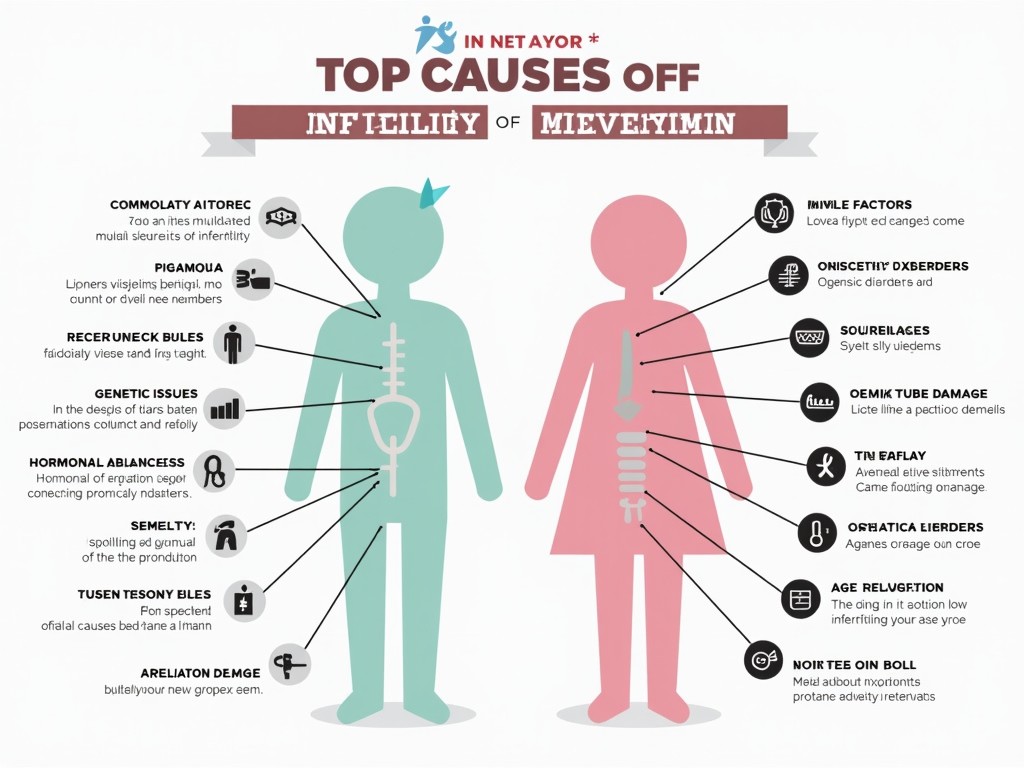Infertility Diagnosis for Men and Women: A Comprehensive Guide
Jan. 3, 2025, 5:05 p.m.
Understanding Infertility Diagnosis for Men and Women
Infertility diagnosis is a critical step for couples trying to conceive. It involves a series of tests and evaluations to identify potential causes of infertility in both men and women. This comprehensive guide aims to shed light on the diagnosis process, options, and insights from those who have experienced it firsthand.

What is Infertility?
Infertility is defined as the inability to conceive after one year of unprotected intercourse or six months if the woman is over 35. It affects both men and women equally, highlighting the need for comprehensive testing in both partners. Identifying the underlying issues is essential for choosing the right treatment path — whether medication, surgery, or assisted reproductive technologies like IVF (In Vitro Fertilization).

The Infertility Diagnosis Process
The journey to an infertility diagnosis begins with a thorough medical history review and physical examinations. A healthcare provider will discuss lifestyle factors, past health issues, and family history. For women, additional assessments like blood tests, ultrasound exams, and hysterosalpingography are common. Men typically undergo semen analysis and hormonal evaluations.
Steps Involved in Infertility Diagnosis:
| Step | Description |
|---|---|
| Medical History | Review of past health and reproductive history |
| Physical Exam | Basic bodily assessments to check for external abnormal conditions |
| Semen Analysis | Examination of sperm count, movement, and shape |
| Ovulation Testing | Checking for hormone levels to ensure regular ovulation |
| Imaging Tests | Use of ultrasound or X-ray to check the reproductive organs |
| Genetic Testing | Determine any genetic causes affecting fertility |

Personal Insights
Many people facing infertility feel isolated or stressed about their situation. Personal stories from those who’ve been through the process are invaluable. Jane, 32, shared, _"Going through tests was nerve-wracking, but knowing what was wrong allowed us to approach our options constructively."
Another perspective from Mike, 35, notes, "Getting comfortable with the idea of testing was tough. But once I understood the importance, it took a weight off our shoulders."
Addressing emotional responses during diagnosis can improve the experience, making it less daunting for others.

Common Causes of Infertility
For Women: - Ovulation disorders - Polycystic ovary syndrome (PCOS) - Endometriosis - Uterine or cervical abnormalities
For Men: - Low sperm production - Blocked sperm ducts - Hormonal deficiencies
Understanding these common causes can help in managing expectations and preparing for possible treatment options.

Treatment Options
Once a diagnosis is made, treatment plans can include lifestyle changes, medications, or surgical interventions. In some cases, IVF or other assisted reproductive technologies might be suggested. Each treatment choice depends heavily on the specific diagnosis, age of the couple, and how long infertility has been an issue.
Exploring IVF
IVF involves fertilizing an egg outside the body, then implanting it into the uterus. It is often recommended for couples who have tried other methods unsuccessfully. Understanding IVF's role in fertility treatment can demystify the process and open doors to hopeful solutions.
Emotional and Psychological Support
Participating in support groups or seeking therapy can provide much-needed emotional relief and psychological support. Many couples have found solace and guidance through community resources and open discussions about their experiences.

Summary
Infertility diagnosis for men and women involves multiple tests and evaluations to uncover the root cause of fertility challenges. Through understanding the diagnosis process and treatment options, individuals and couples can make informed decisions about their reproductive health. Remember, seeking emotional support is as crucial as medical treatment in navigating infertility.
Recommended Readings
- Understanding the Basics of IVF
- Overcoming the Emotional Strain of Infertility
- The Role of Lifestyle in Infertility
Embarking on this journey can be overwhelming, but with the right information and support, you can take confident steps towards parenthood.